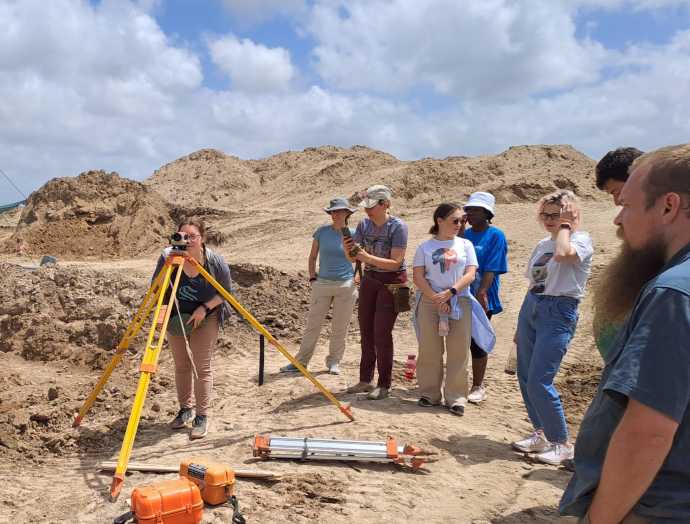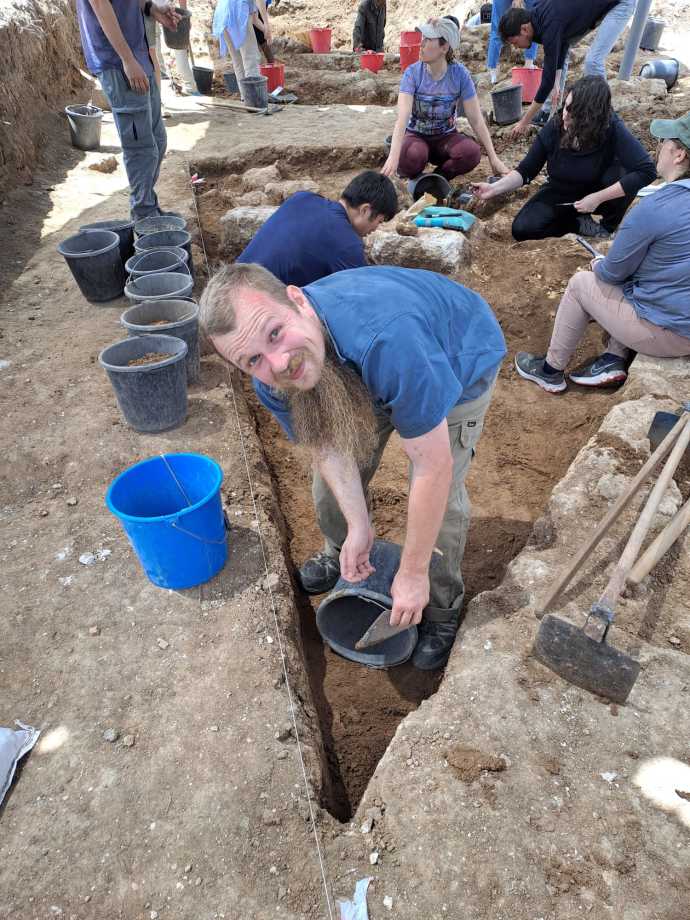WATCH LIVE!
Thursday, 29 June 2023 • 5 pm Israel Time|10 am EST
Growing up, our MA candidate Grady Gillett was drawn to history and archaeology by two different and very special people in his life, his grandfather and his little brother.
“My grandfather, who lived on a beautiful beach in North Carolina, had a gorgeous bookcase full of archaeology and history books on ancient civilizations,” Gillett said during a new interview of the series powered by Tel Aviv University in cooperation with The Jerusalem Post. “My little brother is a bit of a history savant, who from a very young age started to memorize famous speeches from American history.”
Some 15 years later, Gillett has a bachelor's degree in Archaeology, and he is currently studying for an International MA in Ancient Israel Studies at TAU’s Lowy International School - an intensive one-year program taught entirely in English, combining archaeological, historical and biblical research.

“I am Christian and I value this place,” Gillett said, while he explained that the opportunity to attend the program was offered to him by one of his professors at Boston University.
“I remember that she called me into her office and she told me that she had a full scholarship for me to attend the International MA Program at Tel Aviv University” he recalled.

Gillett is gaining expertise in petrography, a cross between geology and archaeology, analyzing pottery, the most common find in any archaeological excavation. By studying the characteristics of the clay, experts can identify the origin of an artifact.
The MA candidate carries out his research in the Ceramic Petrography Laboratory, one of the many labs in the Institute of Archaeology at TAU.
In addition, the program also offers a different ancient-language course every year (with options like Akkadian, Hittite and Biblical Hebrew).
“When I entered the program, they were offering a course in Biblical Hebrew,” Gillet said. “It was really interesting. Not only did it help with understanding some of the ancient texts written on pottery and called ostraca that we found in archaeological excavations. It also helped me with practicing modern Hebrew.”
The article was written in cooperation with Tel Aviv University.